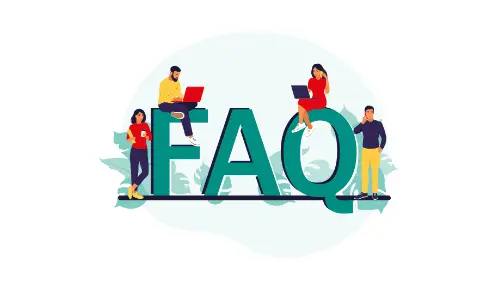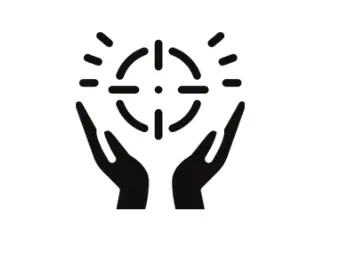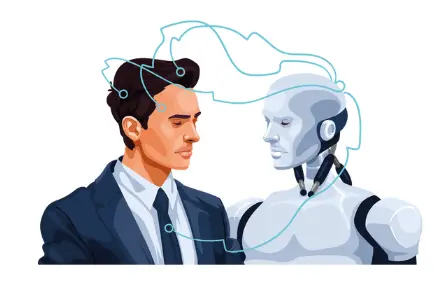Welcome to our comprehensive guide on medical coding FAQs, where we delve into the essential questions surrounding this dynamic field. From exploring job demand and the role of automation to understanding the rewarding aspects of a career in medical coding, this resource aims to provide clarity and insights. Whether you’re a seasoned professional or considering entering the field, discover valuable information that addresses common queries.

What is Medical Coding?
Medical coding involves the conversion of complex medical data into standardized codes using combinations of letters and numbers. These codes, such as those found in the Current Procedural Terminology (CPT) and the International Classification of Diseases (ICD), serve as a universal language for describing healthcare procedures, diagnoses, services, and equipment. This allows for precise communication and documentation in the healthcare field, promoting accuracy and consistency.
Main Purpose of Medical Coding

The main purpose of medical coding is to streamline and standardize the documentation of healthcare services for various essential functions, including:
- Billing and Reimbursement: Medical codes are used for billing purposes, ensuring that healthcare providers receive accurate reimbursement for the services they provide. Insurance companies use these codes to process claims efficiently.
- Insurance Claims: Codes play a crucial role in insurance claims by providing a standardized way to communicate the specifics of medical procedures and diagnoses. This aids in the swift processing and approval of claims.
- Data Analysis: Coded data allows for comprehensive analysis of healthcare trends, disease prevalence, and treatment outcomes. Researchers, policymakers, and healthcare organizations use this information to make informed decisions and improve healthcare delivery.
- Patient Records: Coded information becomes part of a patient’s health record, contributing to a comprehensive and standardized medical history. This aids in continuity of care, as healthcare providers can easily understand and interpret past diagnoses and treatments.
- Compliance: Proper coding ensures compliance with regulatory requirements and standards. Adherence to coding guidelines helps healthcare organizations maintain accuracy, transparency, and integrity in their operations.
Why is Medical Coding Important?
Medical coding is critically important for several reasons:
- Accuracy in Billing: Accurate coding ensures that healthcare providers are reimbursed correctly for the services they render, preventing financial discrepancies and ensuring the sustainability of healthcare operations.
- Data Integrity: Coded data forms the basis for meaningful and accurate data analysis. This information is invaluable for healthcare research, epidemiological studies, and the development of public health initiatives.
- Effective Communication: Standardized codes provide a common language for healthcare professionals, facilitating clear and unambiguous communication regarding medical procedures and diagnoses.
- Regulatory Compliance: Compliance with coding standards and guidelines is essential for meeting regulatory requirements. It helps healthcare organizations adhere to legal and ethical standards in their operations.
Medical coding FAQs
Are medical coding jobs remote?

Yes, medical coding jobs often offer remote work opportunities. Remote work has become increasingly common across industries, including healthcare, with medical coding being no exception. The advantages of working remotely are recognized by numerous healthcare organizations, coding companies, and consulting firms, who now offer medical coders the opportunity to work from their own homes, providing them with a more flexible working arrangement.
Remote medical coding jobs typically involve reviewing and assigning accurate codes to healthcare procedures and diagnoses. Coders may communicate with healthcare providers and other team members electronically to ensure the accuracy of coding and resolve any queries. The transition to remote work in medical coding has been facilitated by advancements in technology, secure online platforms, and the implementation of electronic health records.
Please keep in mind that remote job opportunities may differ depending on the company, specific job criteria, and the type of coding involved. This means that certain positions may still require physical presence or a combination of on-site and remote work. As the healthcare industry continues to embrace digital transformation, the trend toward remote medical coding jobs is likely to persist, providing coders with opportunities for a more flexible and balanced work environment.
Is Medical Coders in Demand?

The demand for medical coders remains consistently high, with the industry projected to see continued growth. The accuracy of coding plays a crucial role in the healthcare field, serving various purposes such as facilitating billing, processing insurance claims, and conducting data analysis. As healthcare services expand and regulations evolve, the need for skilled medical coders becomes increasingly critical. According to the U.S. Bureau of Labor Statistics, employment of health information technicians, a category that includes medical coders, is projected to grow 8% from 2020 to 2032. This growth indicates a sustained demand for professionals with expertise in medical coding. Click the link , If you want to know more about “what medical coders do?”
Can Anyone Do Medical Coding?
While theoretically, anyone can learn medical coding, successful medical coders typically possess certain skills and characteristics. Medical coding requires attention to detail, analytical thinking, and a solid understanding of medical terminology, anatomy, and coding guidelines. Formal education and certification, such as obtaining the Certified Professional Coder (CPC) credential from reputable organizations like the American Academy of Professional Coders (AAPC), are valuable for building the necessary knowledge and skills.
It’s important to recognize that while anyone can embark on the journey to become a medical coder, dedication to ongoing learning and staying ahead of industry updates is crucial. Medical coding is a specialized field that requires continuous adaptation to changes in healthcare practices and coding guidelines.
Can Medical Coding Be Automated?
One of the frequently asked questions by my Instagram family is whether AI will replace medical coding? The landscape of medical coding is transforming with the integration of automation and Artificial Intelligence (AI).
Possibility of Automation
Automation emerges as a possible solution for routine and repetitive tasks within medical coding, such as data entry and code assignment for straightforward cases. These standardized procedures lend themselves well to automation, promising increased efficiency and reduced workload. However, the complete automation of the entire coding process encounters challenges due to the complex decision-making and appropriate understanding required for accurate coding.
AI’s Role in Assisting Coders:
The arrival of AI, particularly in the form of machine learning algorithms, holds promise in assisting medical coders. AI can suggest codes based on patterns and historical data, potentially accelerating the coding process. The objective is to enhance efficiency and provide support in handling routine coding tasks. This represents a paradigm shift in the traditional approach to medical coding.
Human Oversight for Accuracy:
Despite the advancements in AI, there is an indispensable need for human oversight in the coding process. Human coders bring a wealth of knowledge, including a comprehensive understanding of the clinical context, patient history, and the intricate details embedded in medical documentation. This human touch becomes paramount in ensuring the accuracy of code assignment, preventing potential errors, and addressing the complexities that may escape AI systems.
Collaborative Approach:

Rather than positioning AI as a replacement for human coders, a collaborative approach is required. It recognizes the unique abilities of human coders to interpret complex medical information, consider the individual nuances of each case, and apply their knowledge of coding guidelines and regulations. The envisioned collaboration between AI and human coders is the most effective strategy, combining the strengths of both to optimize the coding process.
Future Implications:
It’s important to stay informed about advancements in AI and automation within the healthcare industry, as these technologies continue to evolve and may impact the landscape of medical coding in the future.
Is Medical Coding Going Away/ Being Phased Out?
As of now, there is no indication that medical coding is going away. The demand for skilled medical coders is on the rise. The healthcare industry relies on accurate coding for billing, insurance claims, and data analysis, making the role of medical coders essential. The continued evolution of healthcare practices and regulations suggests that the demand for medical coders is likely to persist.
The complexity of healthcare services, changes in regulations, and the need for accurate documentation contribute to the ongoing demand for skilled medical coders. While certain routine tasks within coding may become automated, the decision-making and context understanding required for accurate coding make complete automation unlikely.
Is Medical Coding Worth It?
Yes, medical coding can be a rewarding and worthwhile career, especially considering the high demand for skilled coders. It provides an opportunity to work in the healthcare industry without direct patient care, offering a crucial behind-the-scenes role. The field also allows for career advancement, specialization, and the potential for self-employment.
Is Medical Coding Hard?
Medical coding can be challenging, as it requires a keen attention to detail, analytical thinking, and a solid understanding of medical terminology and anatomy. The complexity of healthcare procedures and the need to stay updated on coding guidelines can make it challenging for some individuals. However, with proper education, training, and dedication, many find success and satisfaction in the field.
Can Medical Coders Be Self-Employed?
Yes, many medical coders choose to be self-employed. They can work as independent contractors or establish their own consulting firms. This flexibility allows coders to manage their schedules, choose projects aligned with their expertise, and potentially achieve a better work-life balance. However, self-employment also requires business intelligence and the ability to manage the administrative aspects of running a coding practice.
Conclusion
In the evolving world of medical coding, automation and AI offer efficiency but cannot replace the crucial human touch. While automation streamlines routine tasks, the decision-making of human coders is irreplaceable for accuracy and ethical considerations. A collaborative approach, combining AI and human expertise, emerges as the most effective strategy. Contrary to concerns, medical coding is not fading; it’s adapting. The demand for skilled coders grows, providing stable and rewarding career opportunities. Despite its challenges, medical coding remains a fulfilling profession with the potential for specialization and self-employment.
In this dynamic landscape, staying informed about AI advancements is essential. The future lies in a harmonious collaboration between technology and human expertise, ensuring the continued significance of medical coding in healthcare. Embracing change and recognizing the enduring value of the human element will be key as we navigate the transformative journey of medical coding.


